“生成式人工智能与人类创造力”全球元对话系列


发布时间:2024年4月30日


生成式人工智能与人类创造力
全球元对话之三
人工智能时代,“合理使用”有多合理?
Talk III: How fair is “fair use” in the AI age?
01
对话简介
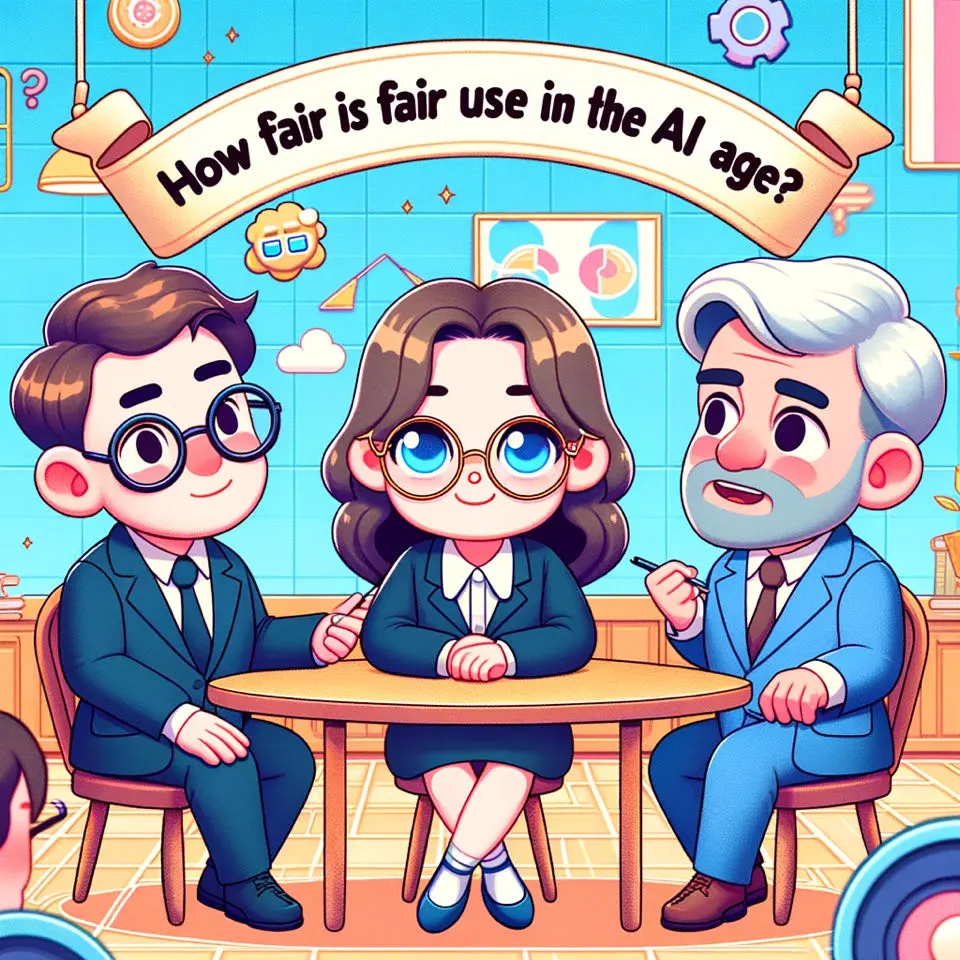
(图片由郝元博士通过DALL-E3生成)
从法理上说,合理使用抗辩一直是版权/著作权制度用来平衡原始“表达性创造”的知识产权保护与后续“表达性创造”所需信息自由的一个重要安全阀。
Conventionally, the fair use doctrine has been serving as a safety valve in balancing the copyright protection of expressive creativity and necessary access for cumulative creativity.
从立法意图与文义解释的角度,现代美国版权法的基本构建是宽泛的权利与狭窄的权利限制(包括合理使用)之结合。然而由于种种原因,过去几十年间原本有限且灵活的合理使用抗辩在司法实践中已经转变为单一的“转换性使用Transformative Use“测试:简单来说,如果法官对比发现侵权作品与原始作品相比具有不同特性或者新的表达因素,则很容易认定其构成”转换性使用“,而后大概率会进一步认定为”合理使用“而逃脱侵权责任。这种过度简化的测试在实践层面导致了一系列问题,例如作者的改编权(derivative right)和转换性使用辩护之间的冲突与界限不明。
Despite the modern US Copyright Act's legislative intent of having broad exclusive rights and narrow limitations, however, for some reasons in past decades the supposedly limited fair use doctrine has turned essentially into a broad transformativeness test, i.e. the secondary work is transformative as a matter of law “[i]f looking at the works side-by-side, the secondary work has a different character, a new expression, and employs new aesthetics with [distinct] creative and communicative results.” This simplistic inquiry has arguably caused, among other confusions, a serious collision between authors' right to derivative works and the transformative-use dominated fair use defense.
随着生成式人工智能工具在创意产业领域的快速部署,这种冲突可能会严重加剧。例如,近来中美均有一些重要案例,其中AI公司未经许可以人类艺术家受版权保护的作品作为大模型训练的“原材料”。这种行为被一些AI公司及数位顶级知识产权学者(帕梅拉萨缪森教授、马克莱姆利教授、Matthew Sag教授 及Christopher Sprigman教授等)主张为合理使用,理由是大模型输出成果与这些原始权利作品相比具有“转换性”。
This collision is likely to be further exacerbated with the rapid deployment of generative AI tools in the creative industry, where consumption of large amount of copyrighted works (as "raw materials") in the training process has been forcefully argued by some as fair use, due to the "transformativeness" of the AI outputs.
但这种对于“合理使用”的宽泛诠释真的合理公平吗?考虑到人工智能大模型的此类同质性输出其实构成了与一些人类艺术作品有力竞争的商品,这个问题更加值得我们深思。如果我们深入法理层面,随着“人工智能时代”的到来,不断拓宽的合理使用抗辩是否与知识产权制度几个世纪以来激励和尊重人类创造力的核心原则一致?
But is this "fair use" indeed fair, particularly in light of the fact that many of such AI outputs constitute competitive commodities with the original copyrighted works generated by human artists? On a deeper level, is such a broad fair use doctrine consistent with the principles of IP system that has been running for centuries to incentivize and honor human creativity?
所幸,2023年Warhol v. Goldsmithy一案中,美国最高法院(索托梅尔大法官执笔)有力澄清了合理使用抗辩与改编权相互作用中长期存在的一些困惑,有正本清源之效。此案虽不涉及人工智能,但为我们此刻的思考与讨论带来了许多启示。如您对这个话题也有兴趣,请参与我和两位伯克利同事Peter Menell教授、Robert Merges教授于北京时间5月1日早八点至九点半的对谈:How fair is “fair use” in the AI age?
In the wake of Warhol v. Goldsmith, a landmark case in which the US Supreme Court took great pains to clarify the decade-long confusion prevalent in the interplay of fair use and right to derivative works,please join me in an in-depth discussion with my esteemed Berkeley colleagues Prof. Peter Menell, Prof. Robert Merges: how fair is "fair use" in the AI age?

02
对话嘉宾
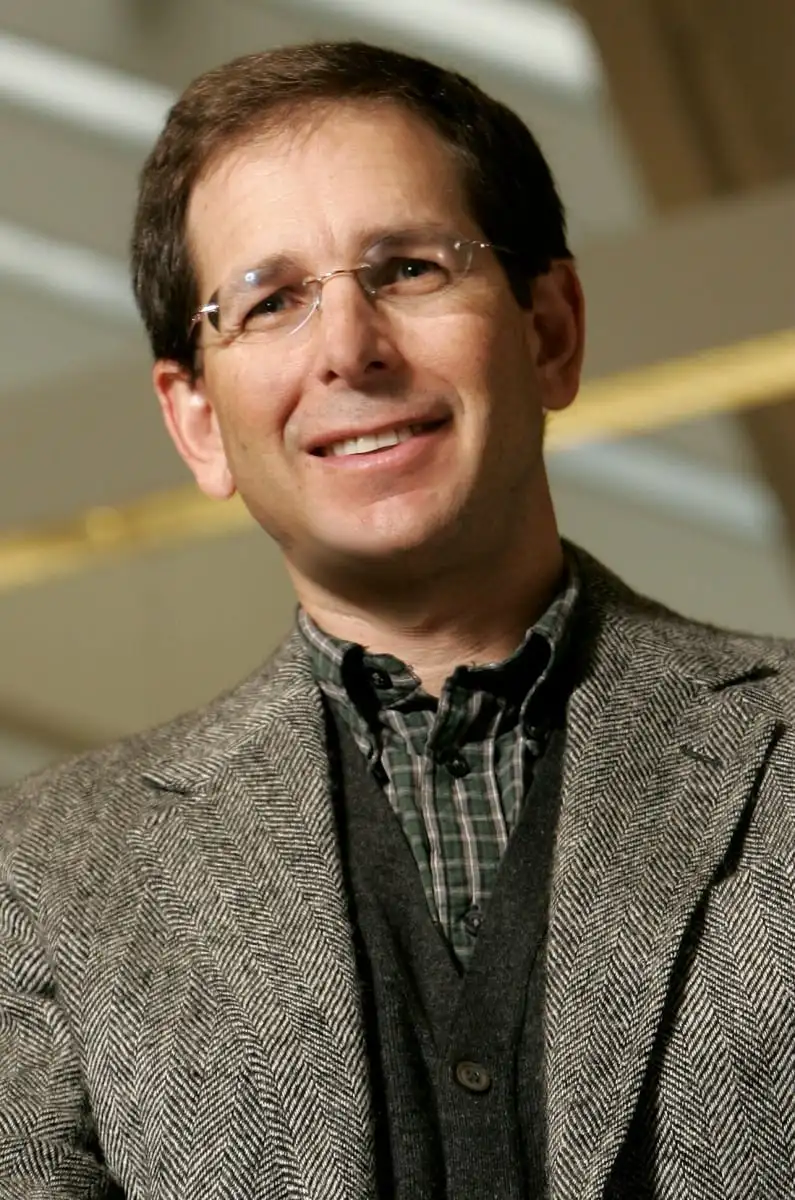
Peter Menell,伯克利法学院Koret讲席教授,伯克利法律与科技中心联合创始人。

Robert Merges,伯克利法学院Wilson Sonsini Goodrich & Rosati讲席教授,伯克利法律与科技中心联合创始人,伯克利亚洲知识产权与竞争法中心联席主任。
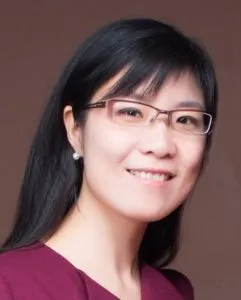
郝元博士,伯克利法学院高级研究员/亚洲知识产权与竞争法中心联席主任(2024年1月起)。

03
会议信息
时间: 2024年5月1日
8:00-9:30 (北京时间)
Time: May 1st, 2024
8:00-9:30 (Beijing time)
形式:线上zoom + 知产宝平台直播
Format: Zoom + Live streaming by IPHOUSE

本次对话将在知产宝平台同步直播,您可以通过知产宝直播平台观看直播;也可以点击”阅读原文“,直接进行zoom会议注册。
长按识别下方二维码预约知产宝IPHOUSE视频号直播
↓↓↓

注:
1. 关于“全球元对话系列讲座”详细信息,您可点击“生成式人工智能与人类创造力”全球元对话系列”具体了解。
2. 关于本次对谈演讲嘉宾Peter Menell教授、Robert Merges教授,您可以点击“伯克利法学院知识产权法的三大台柱子”具体了解。

(本文仅代表作者观点,不代表知产力立场)
来源 | BCLT 编辑、翻译 | Yichen Z.
发布时间:2024年3月10日



生成式人工智能与人类创造力全球元对话之二
生成式人工智能商业化前景
Talk II: Commercialization Landscape of Gen-AI
01
对话简介

(图片由郝元博士通过DALL-E3生成)
本次会议是一场致力于探讨生成式人工智能新兴商业化前景的会议。
Please join us for Talk II, a session dedicated to unraveling the emerging commercialization landscape of Gen-AI.
会议邀请了两位业界先锋:亚洲人工智能先锋小冰公司的创始人兼首席执行官李笛,以及美国西海岸著名风险投资SkyDeck Fund创始人/管理合伙人Chon Tang。他们将与伯克利法学院高级研究员/亚洲知识产权与竞争法中心联合主任郝元一起探索生成式人工智能从尖端技术到不可或缺的市场解决方案的变革之旅。
This talk features insights from two vanguards in the field: Di Li, the visionary Founder and CEO of XiaoIce,Asian renowned AI company, and Chlon Tang, the esteemed Founding / Managing Partner of Berkeley SkyDeck Fund. Together with Yuan Hao, Senior Fellow and Co-Director of BAIC, Berkeley, they will explore the transformative journey of Gen-AI from cutting-edge technological novelty to indispensable market solutions.
目前来看,社会各界对生成式人工智能技术的态度已经从最初对技术的兴奋逐渐过渡到对实现生成式人工智能真正价值和全面用户体验的需求,我们的演讲者将剖析推动生成式人工智能企业成功的关键因素,深入研究现象级火爆应用的出现,并分享创造深层价值以促进积极用户参与的策略。
As the initial excitement surrounding AI technologies gradually gives way to a demand for real value and comprehensive user experiences, our speakers will dissect the critical elements driving the success of Gen-AI ventures, delve into the emergence of killer applications, and share strategies for creating deep value that fosters active user engagement.
本次会议旨在阐明在生成式人工智能生态系统中开拓持久业务和进行持续创新的道路,启发大家思考在生成式人工智能这一快速发展的商业环境中前行方法和思维方式。希望本次讲座可以让听众更深入地了解生成式人工智能是如何开始重塑创新和创意产业的。
This session aims to illuminate the path towards building enduring businesses and innovation in the Gen-AI ecosystem, highlighting the notable approaches and mindsets required to navigate this rapidly evolving commercial landscape. Hopefully, this talk will provide our audience with a deeper understanding of how Gen-AI is starting to reshape innovative and creative industries.

02
对话嘉宾
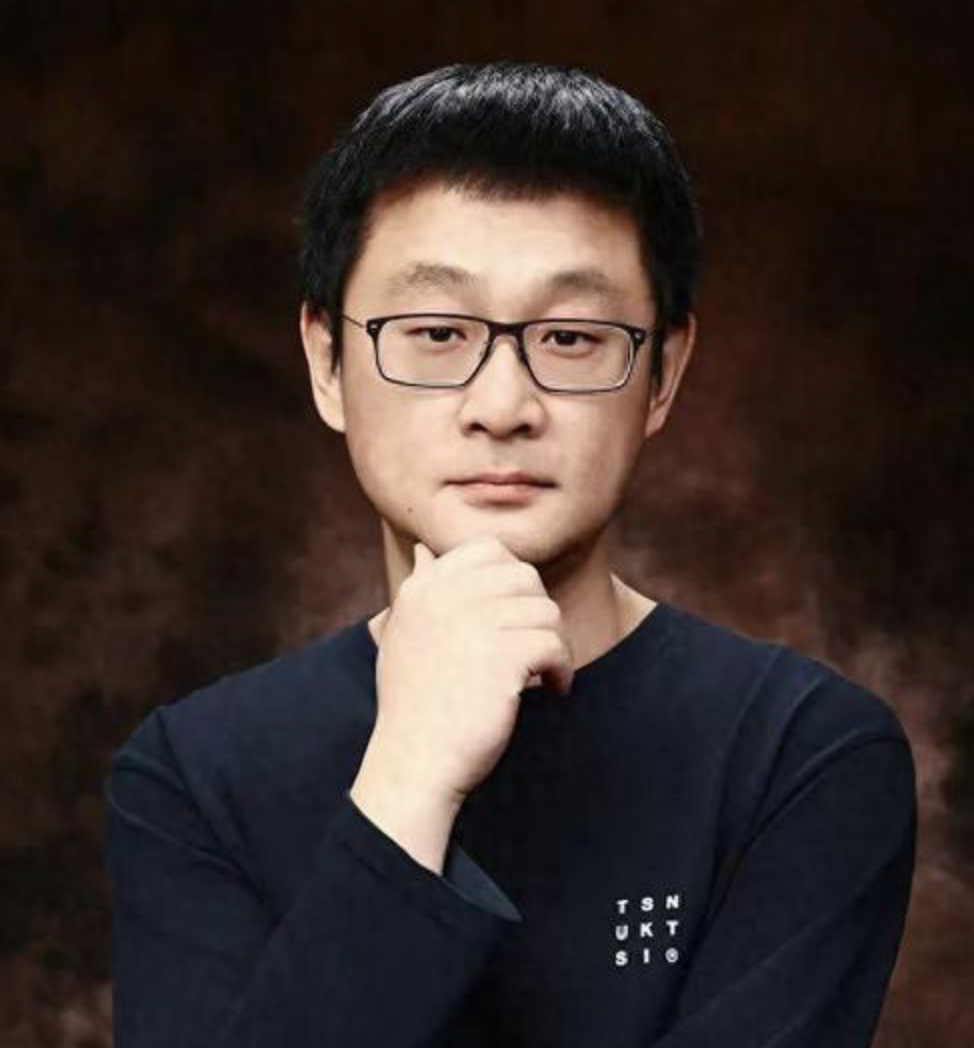
李笛(Di Li),前微软(亚洲)互联网工程院副院长,现任亚洲人工智能先锋小冰公司首席执行官,毕业于清华大学。

Chon Tang,伯克利SkyDeck Fund创始人/管理合伙人, 资深创业者、计算机科学家、风险投资者、基金经理。
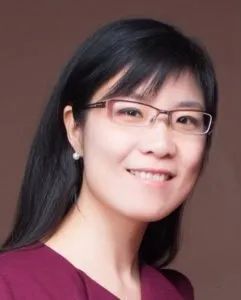
郝元博士,伯克利法学院高级研究员/亚洲知识产权与竞争法中心联合主任(2024年1月起)。目前学术兴趣为专利法、竞争与创新、及知识产权制度对于人工智能挑战的因应。2023年在伯克利讲授美国法学院第一门人工智能与知识产权的全新课程。

03
会议信息
时间: 2024年3月19日
8:30-10:00 (北京时间)
Time: Mar. 18th, 2024
16:30-18:00 (PT)
形式:线上zoom + 知产宝平台直播
Format: Zoom + Live streaming by IPHOUSE

注:您可以选择通过Zoom参与对话,或者通过知产宝直播平台观看直播。点击“阅读原文”可直接进行zoom会议注册。
长按识别下方二维码预约知产宝IPHOUSE视频号直播
↓↓↓
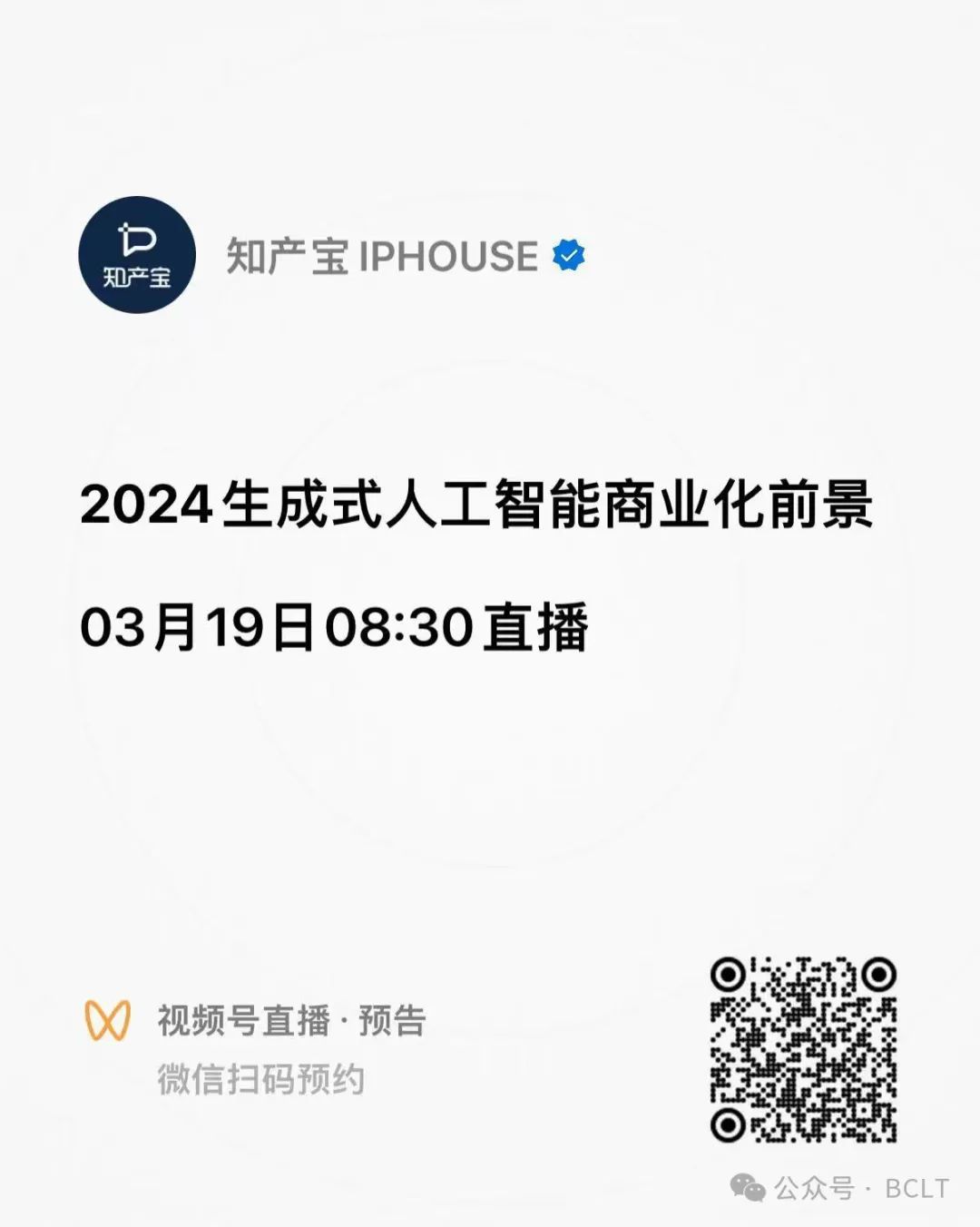
回看本次直播或关注更多会议、课程,请登录知产林网站:https://www.zhichanshu.cn 或联系知产林客服晓知:

编辑:Yichen Z.
翻译:Yichen Z.

(本文仅代表作者观点,不代表知产力立场)
来源 | BCLT
发布时间:2024年1月16日

生成式人工智能与人类创造力
全球元对话系列

对话简介
2023年被不少人称为生成式人工智能元年。这种说法当然并不准确,因为人类对其探索开始于1960年代,然而由于近年来大语言模型的飞速发展,生成式人工智能的确于23年开始进入公众视野。与之前的分析式人工智能不同,生成式人工智能能够在一定情况下自主生成具有原创外观的内容,例如具有“艺术“外观的图片、文字和创造性的技术方案等,这其实昭示了人类创造过程的一个重要范式转变。
After decades of bust and boom, the year 2023 witnessed a meteoric rise of Generative AI (“Gen-AI”). Distinct from its predecessor Analytical AI, Gen-AI’s capability to produce ostensibly creative content, including aesthetically appealing “art” pieces with human prompts and innovative technical solutions to well-defined problems, heralds a paradigm shift in human being’s creative process.
正如最近各国与人工智能相关的一些知识产权案例所表明,新创造范式已经对旨在激励和尊重人类创造力的知识产权制度提出了真实的挑战。在争议问题中,目前有两个尤为紧迫:(1)是否应该保护生成式人工智能具有原创外观的产出,以及(2)是否可以“合理使用”受到知识产权保护的数据来进行机器学习训练?
As manifested by the recent cases globally, this paradigm shift starts to pose real-world challenges to the good old IP system that aims to incentivize and honor human creativity. Among the various doctrinal challenges, two stand out at the moment as particularly pressing: (1) should IP protect the outputs of such human + AI (“Centaur”) creative synergies, and (2) can proprietary data be “fair used” to train Gen-AI?
从长远来看,知识产权制度如何应对这些挑战可能对生成式人工智能生态系统的演变,以及更重要的是,对于人类创造力的未来产生深远影响。然而应对好这些挑战非常不容易:它不仅需要我们熟悉知识产权制度具体的法律法规,也要求我们对于生成式人工智能背后快速发展的商业化价值链、与以人为本哲学相协调的核心监管原则、知识产权制度促进人类多元化创造的正当性基础与具体机制,以及对人类创造力在即将到来的“生成式人工智能时代“中的终极角色等一系列问题有着深入的理解与思考。面对”生成式人工智能时代“带来的共同挑战,世界各国由于其具体法律、政治经济、社会和文化环境的不同,而可能探索不同的路径。这种多元化的路径探索应该受到鼓励,但基于促进理解与建立共识的全球对话亦不可或缺。
In the long term, how IP system addresses these challenges may have profound implications on the evolution of the Gen-AI ecosystem, and more importantly, the future of human creativity. Finding the proper answers however, requires a perspective that spans beyond the confines of IP doctrines alone - it demands solid understanding of the rapidly evolving value chain and commercialization landscape, core regulatory principles in harmony with a human-centered approach, the concrete mechanisms IP system uses to facilitate diversity and equity in creation, as well as a philosophical contemplation on what human creativity means in the dawning “age of Gen-AI”.
在此背景下,伯克利法学院亚洲知识产权与竞争法中心于2024年推出“生成式人工智能与人类创造力:全球元对话系列”。该系列以中文“元”命名,象征创新与新时代的开始;并且与“圆“谐音,象征包容、平等和成效性的圆桌对话,主持人为亚洲知识产权与竞争法中心联合主任郝元博士(郝元博士亦于2023年秋开设美国法学院第一门人工智能与知识产权课程)。本对话系列旨在促进来自不同国家地区、不同领域声音之间的建设性交流,也共邀学者、艺术家、发明人、企业家、投资人与政策制定者一起探索健康的发展路径,以使知识产权制度在AI时代继续为人类创造力护航。
Against this backdrop, our Asia IP and Competition Law Center (“ASIC”) at BCLT launches the “Yuan Global Talks on Generative AI and Human Creativity.” The series is named for the Chinese “Yuan” (元), echoing the beginning of a new epoch, and “Yuan” (圆), a circle symbolizing inclusivity, equality and productive discourse – principles that also resonate with the hostess’ name, Dr. Yuan Hao, Senior Fellow and Co-Director of ASIC. This conversation series strides beyond national borders, aiming to foster a constructive exchange between voices from diverse spheres. It is an invitation to scholars, creators, entrepreneurs and policymakers, particularly from the US and Asia, to forge a collaborated path through the evolving narrative of Gen-AI assisting, rather than displacing human creativity.
首期对话
对话一:生成式人工智能对著作权法下作者概念的挑战
Talk I: Copyright Challenge – A Comparative Law View on Authorship

(图片由郝元博士通过DALL-E3生成)
2023年11月,北京互联网法院(“BIC”)就Stable Diffusion AI生成的图像是否能够受到著作权法的保护做出了具有里程碑意义的判决(李某诉刘某),认定向机器提供精心提示的人类用户是“作者”。这一判决在中国引发了激烈的争论,同时也引起了国际社会的广泛关注。
In Nov. 2023, Beijing Internet Court (“BIC”) issued a landmark judgment (Li v. Liu) on the copyright eligibility of an image generated with Stable Diffusion AI, finding the human user that provided elaborate prompts to the machine to be the “author”. This judgment has triggered a flurry of vigorous debates in China, and meanwhile attracted significant international attention.
有人评论说,北京互联网法院的这份70美元的判决可能会对中国AIGC的发展产生深远的影响,为一个价值万亿美元的产业创造了释放与成长空间。一些人将该判决与美国版权局最近发布的系列决定进行了对比。根据美国版权局的决定,虽然人类用户已经进行了数百次提示输入,美国版权局仍拒绝对人工智能工具生成的图像进行版权注册。需要注意的是,我们不应只关注中美两机构给出不同裁判结果的具体结论,而忽略了他们面对生成式人工智能给作者概念带来的共同挑战时,均采用了以人为本裁判标准的重要事实。随着生成式人工智能工具带来的创造范式变革,我们逐渐开始见到金斯伯格教授及Luke Budiarjio2019年一篇文章中所定义的“authorless works无作者作品”的真实案例:这些具有作品外观的生成物可能无法满足传统著作权法下作者概念的要求,但有些可能具有比较高的市场甚或艺术价值(取决于我们如何定义“艺术”)- 它们是否应该受到著作权法的保护,是目前许多国家面对的共同难题。要解决这一难题,我们的思考也许不能局限于具体法律法规层面,而要回到著作权法的正当性基础等深层逻辑。
Some commented that this $70 ruling may have far-reaching implications on the evolution of AIGC in China, unleashing a trillion-dollar industry. Some contrasted this judgment with the various decisions issued lately by the USCO, which refused the copyright registration of images generated with AI tools, despite the hundreds of prompt inputs by the human user. The apparent disparity in outcomes however, may have largely shadowed the similarity of a human-centered approach adopted by both institutions facing a common conundrum. With the emergence of powerful Gen-AI tools and their varied synergies with human beings, we now start to witness real-world examples of “authorless works” as coined by Prof. Ginsburg and Luke Budiardjo. While these “works” may not fulfill the conventional authorship requirement, some of them may have remarkable commercial or even arguably artistic values (depending how we interpret “art”). How to properly address this common challenge faced by all jurisdictions, may require us to go beyond the doctrinal level and revisit the justification root of copyright law / author’s law, in light of the legal and economic context in the particular jurisdiction.
本次对话,我们邀请了两位中国著作权法方面的著名学者崔国斌教授和王迁教授作为对话嘉宾。两位教授将为我们深度剖析这个里程碑式的案例。与之相对,BCLT联合创始人、伯克利亚洲知识产权与竞争法中心联合主任莫杰思教授也将从美国版权法律及知识产权的正当性基础层面提供他的独到见解。
In this inaugural Talk, we invited Profs Guobin Cui and Qian Wang, two renowned copyright law scholars in China to give us a nuanced account of this case, against the backdrop of how the rapidly evolving copyright law deals with various technological challenges in China. As a comparison, BCLT’s own Prof. Robert Merges, Co-Director of BAIC, will provide his insight through the lens of US copyright doctrines, as well as the underlying principles of intellectual property.
对话嘉宾
崔国斌教授(清华大学法学院)
Prof. Guobin Cui (Tsinghua University School of Law)
王迁教授 (华东政法大学法学院)
Prof. Qian Wang (Eastern University of Political Science and Law)
罗伯特·莫杰思教授(伯克利法学院)
Prof. Robert Merges (BCLT, UC Berkeley)
会议信息
时间: 2024年1月24日
8:30-10:30 (北京时间)
Time: Jan. 23rd, 2023
16:30-18:30 (PST)
形式:线上zoom + 知产宝平台直播
Format: Zoom + Live streaming by IPHOUSE
后续对话预告
对话二:生成式人工智能的商业化版图(2024年2月,暂定)
Talk II: Commercialization Landscape of Gen-AI 2024 (Feb. 28 2024, TBA)
对话三:生成式人工智能的规制 – 中美比较法角度(2023年4月)
Talk III: Transpacific AI Governance – Converge or Clash? (April 2024)
对话四:生成式人工智能对著作权法下“合理使用”制度的挑战(2024年8月)
Talk IV: Copyright Challenge – How Fair is Fair Use in the “AI Age”? (Aug. 2024)
对话五:生成式人工智能对文化产业的影响(2024年9月)
Talk V: Impact on Entertainment Industry and the Right of Publicity (Sep. 2024)
对话六:生成式人工智能对科技研发的影响以及专利法因应(2024年10月)
Talk VI: Generative AI for Science and Its Patent Law Implications (Oct. 2024)
对话七:算力瓶颈与中美人工智能竞赛(2024年11月)
Talk VII: The Compute Bottleneck and the US – China AI Competition (Nov. 2024)
对话八:生成式人工智能,社会偏见与中国女性创造力(2025年1月)
Talk VIII: Generative AI, Social Bias and Feminine Creativity in China (Jan. 2025)
对话九:“人工智能时代”的知识产权与反垄断(2025年2月)
Talk IX: IP and Antitrust in the “AI Age” (Feb. 2025)
对话十:“人工智能时代”知识产权的正当性解释(2025年4月)
Talk X: Justifying Intellectual Property in the “AI Age” (April 2025)
主持人简介

郝元博士,伯克利法学院高级研究员/亚洲知识产权与竞争法中心联合主任(2024年1月起)。目前学术兴趣为专利法、竞争与创新、及知识产权制度对于人工智能挑战的因应。2023年秋起将讲授新课IP and Human Creativity in the AI Age。
2015-2020年,曾在清华大学法学院讲授美国专利法案例课,及知识产权与反垄断读书会。2016-2018年,曾任斯坦福胡佛研究所客座研究员。郝元本科毕业于北京大学物理学系,后在美国宾夕法尼亚州立大学获得纳米工程科学博士(PhD),和布鲁克林法学院法律博士(JD)学位。郝元拥有美国纽约州及中国律师执业资格,曾在纽约联邦东区地区法院担任法官助理,后在金杜律师事务所执业知识产权诉讼数年。2018年至今,同时担任东京国际知识产权仲裁中心仲裁员。近年来除学术研究外,亦在涉及知识产权/标准必要专利许可反垄断调查或跨国诉讼及仲裁案件中任专家组成员或专家证人。
注: “生成式人工智能与人类创造力:全球元对话系列”的部分内容将在知产宝平台同步直播,您可以选择通过Zoom参与对话,或者通过知产宝直播平台参与对话。首期对话zoom链接将在随后公布,期待您的加入。
长按识别下方二维码预约知产宝IPHOUSE视频号直播
↓↓↓
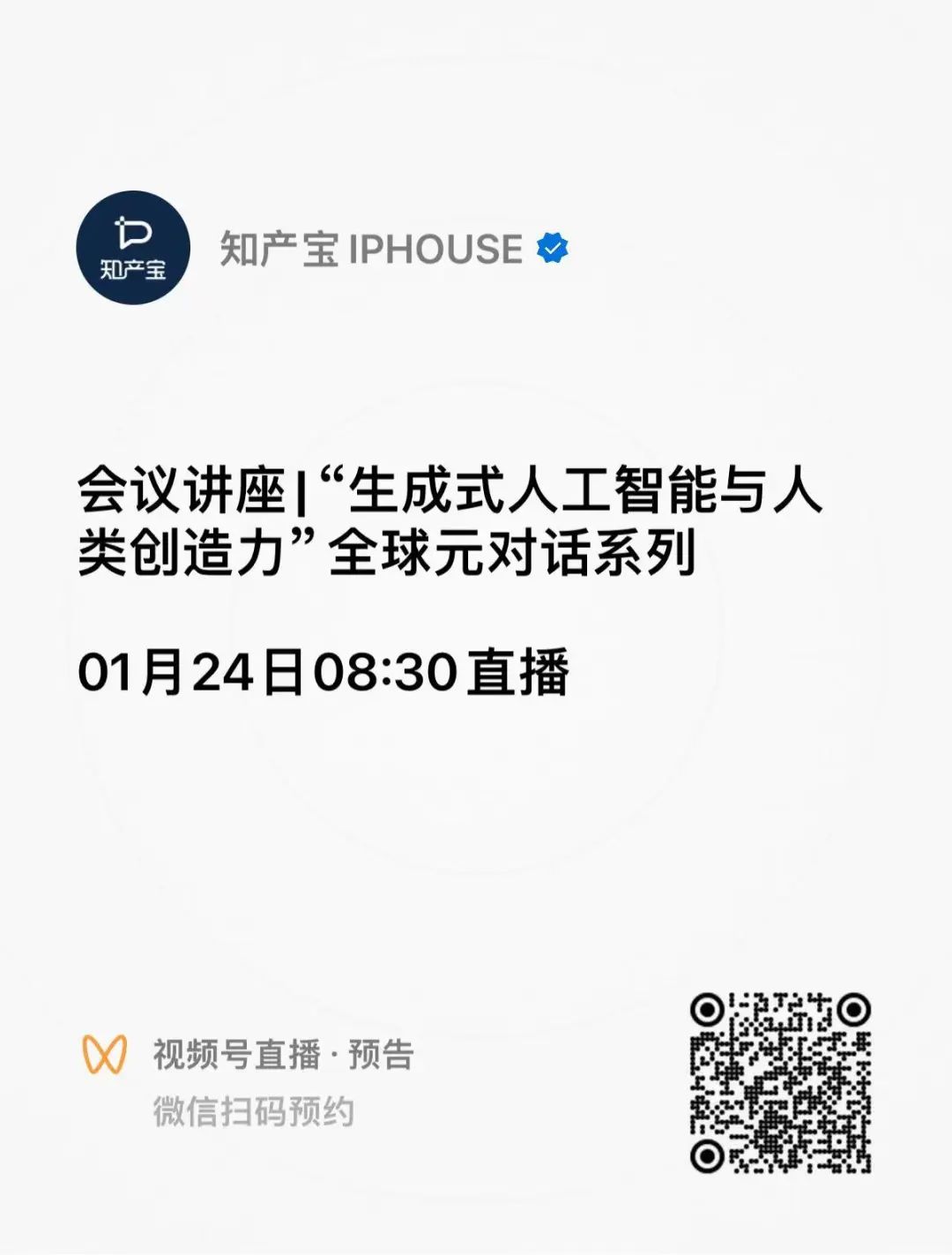
(本文仅代表作者观点,不代表知产力立场)
编辑、翻译 | Yichen Z.